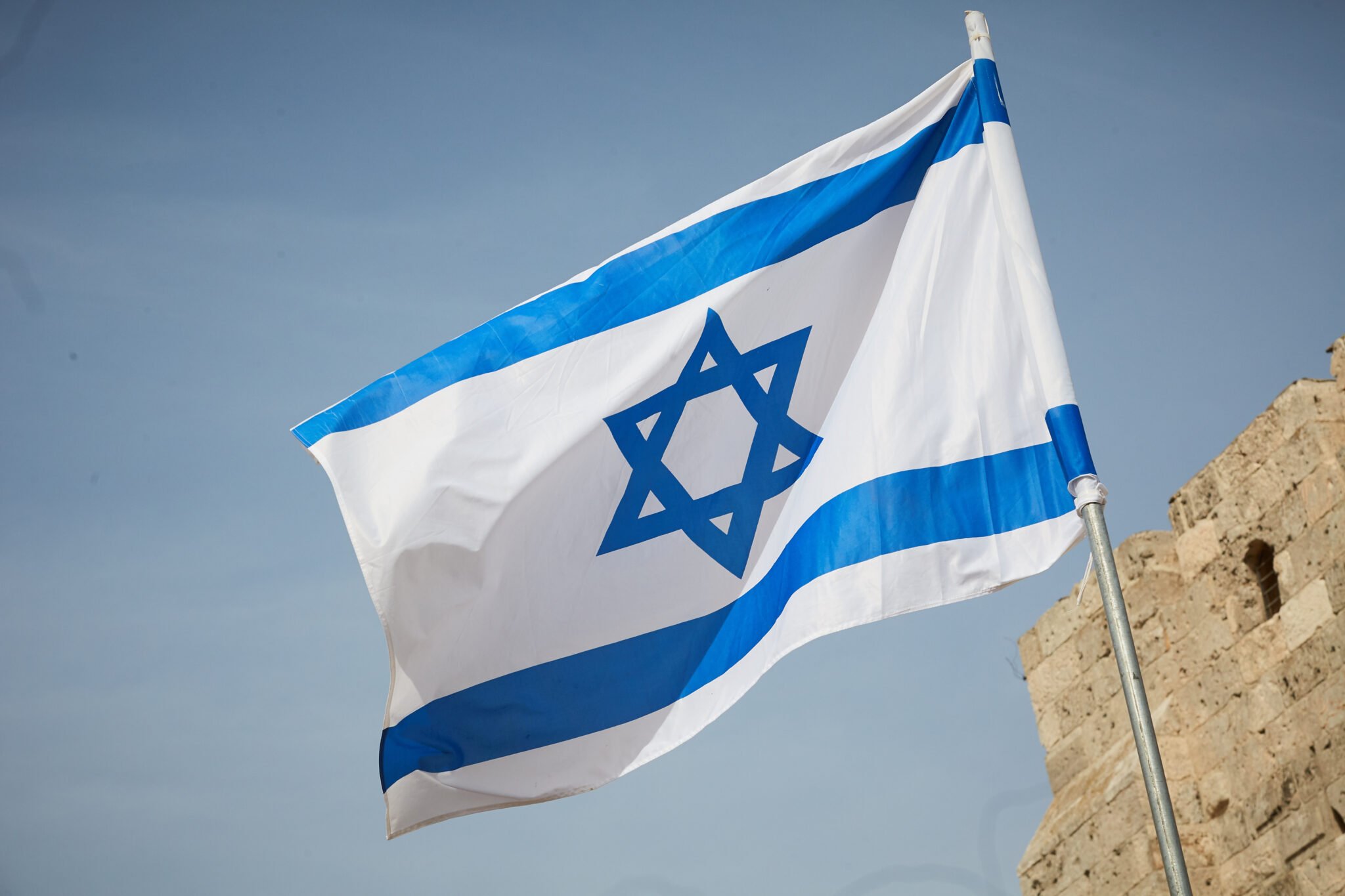
Read all about the UN Vote of November 29, 1947 – a momentous occasion in Israel’s history and key step towards Independence – as well as how the date is honored in Israel today!
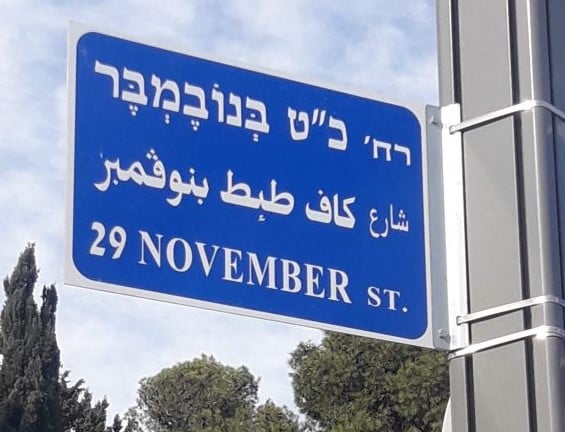
The 29th of November – known in Hebrew as Kaf Tet b’November – is a date so iconic that there are streets named after it in many Israeli cities: Jerusalem, Ashdod, Petach Tikva, Herzliya, and more. It represents a key moment in the lead-up to Israeli national independence, and some have even considered making it a national holiday.
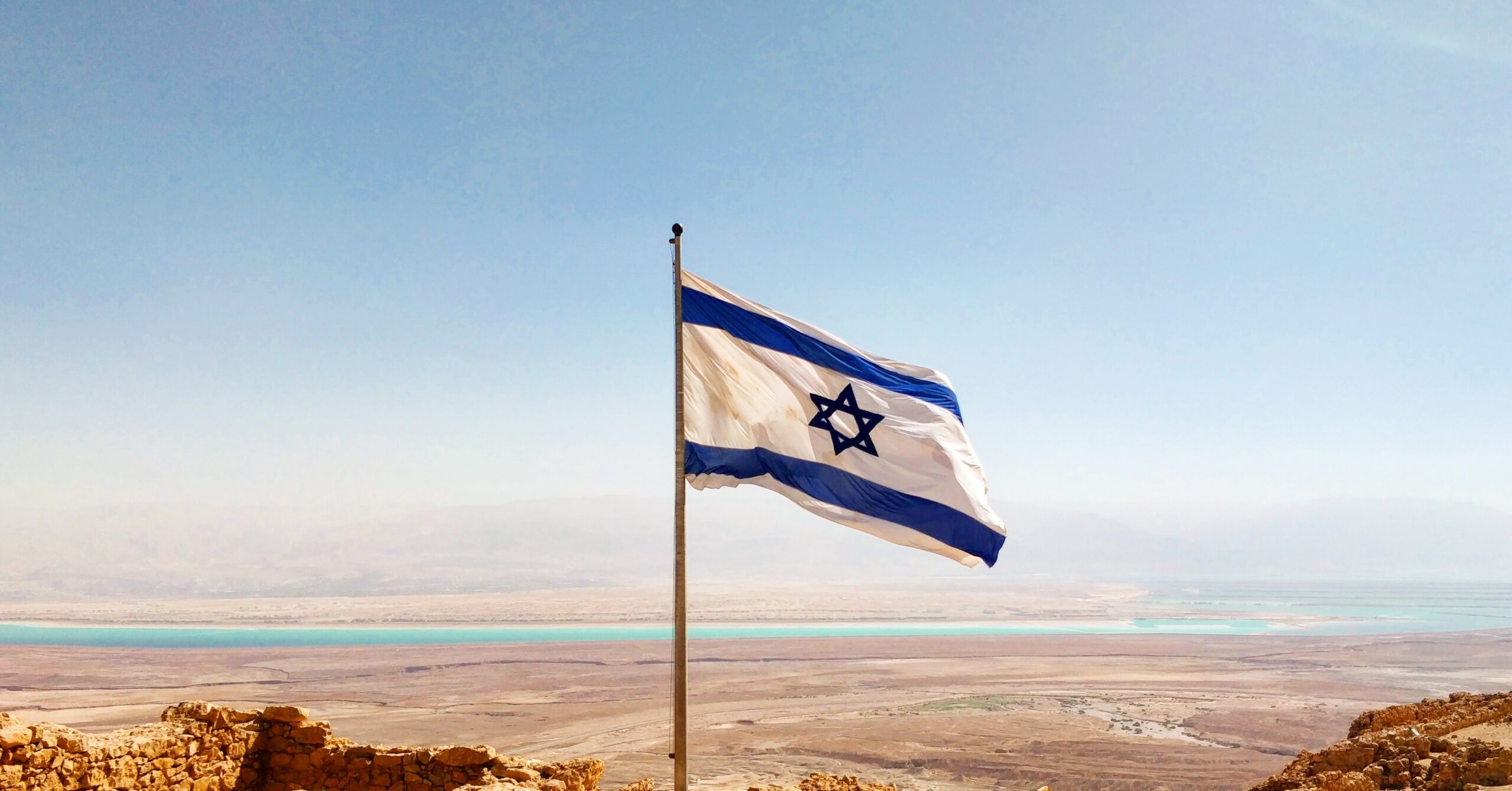
While official Israeli Independence was declared on May 14th, 1948, the international recognition that many say made it possible happened when the UN General Assembly voted on and approved the Partition Plan for Mandatory Palestine – allowing the creation of a Jewish state alongside an Arab one – on November 29th, 1947.
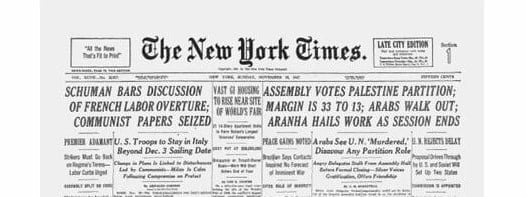
Jews in the Land of Israel and all over the world listened to live announcements of the United Nations' vote count on the radio with bated breath, and spontaneous cheers and dancing erupted in the streets as soon as it was over.
The final count was more than enough to pass the proposed partition, known as Resolution 181: 33 countries were in favor, 13 opposed, 10 abstained, and one was absent.
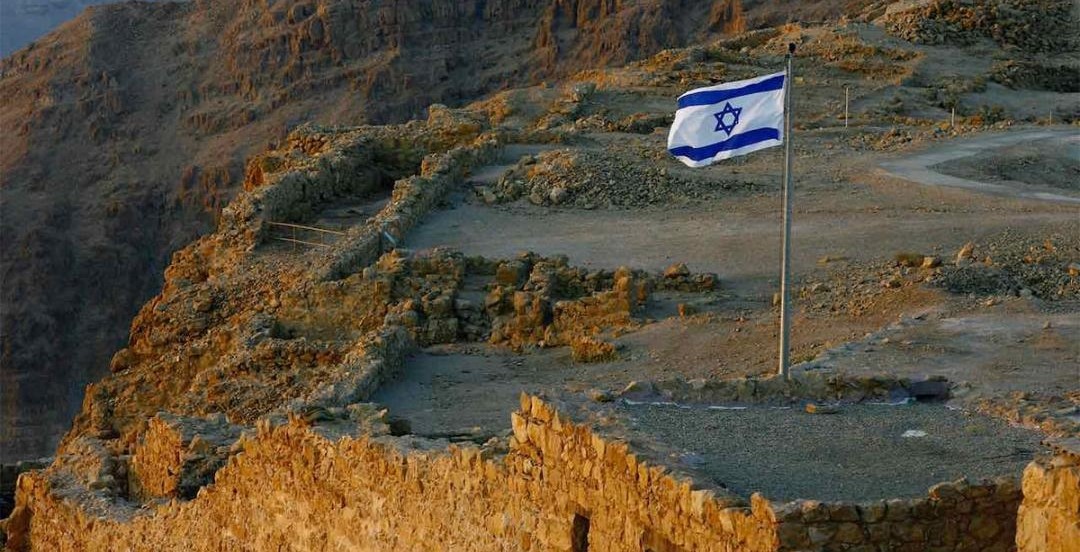
The UN vote came during a bloody civil war between Jews and Arabs in what was then Mandatory Palestine, with Jewish safety in jeopardy as the region’s Arab population was growing increasingly and ever more violently hostile to any continued Jewish presence in the Land of Israel.
It was also only a couple of years after the Holocaust, which saw a near decimation of Europe’s Jewish population, and amid increased violence and pogroms against Jewish communities throughout the Middle East and North Africa.
The international community’s recognition of and promise of Jewish sovereignty therefore came as a welcome sign of hope that brighter days lay ahead. Even though it would be several more months until independence would be formally declared by David Ben-Gurion, the UN approval was a sort of mini-independence celebration for the Jews living in the Land of Israel.
In addition, the Zionists who had been agitating for Jewish sovereignty in the Land of Israel wanted recognition and legitimacy on the international stage, to assure that the State would last, and formal approval by the United Nations fulfilled that role.
The vote was also important for internal Jewish unity and agreement. Many of the more religious Jews, who were initially opposed to the creation of a Jewish state without Divine intervention, considered the UN resolution to be a sign from God and a formal consent by the nations of the world to restore Jewish sovereignty in the Holy Land.
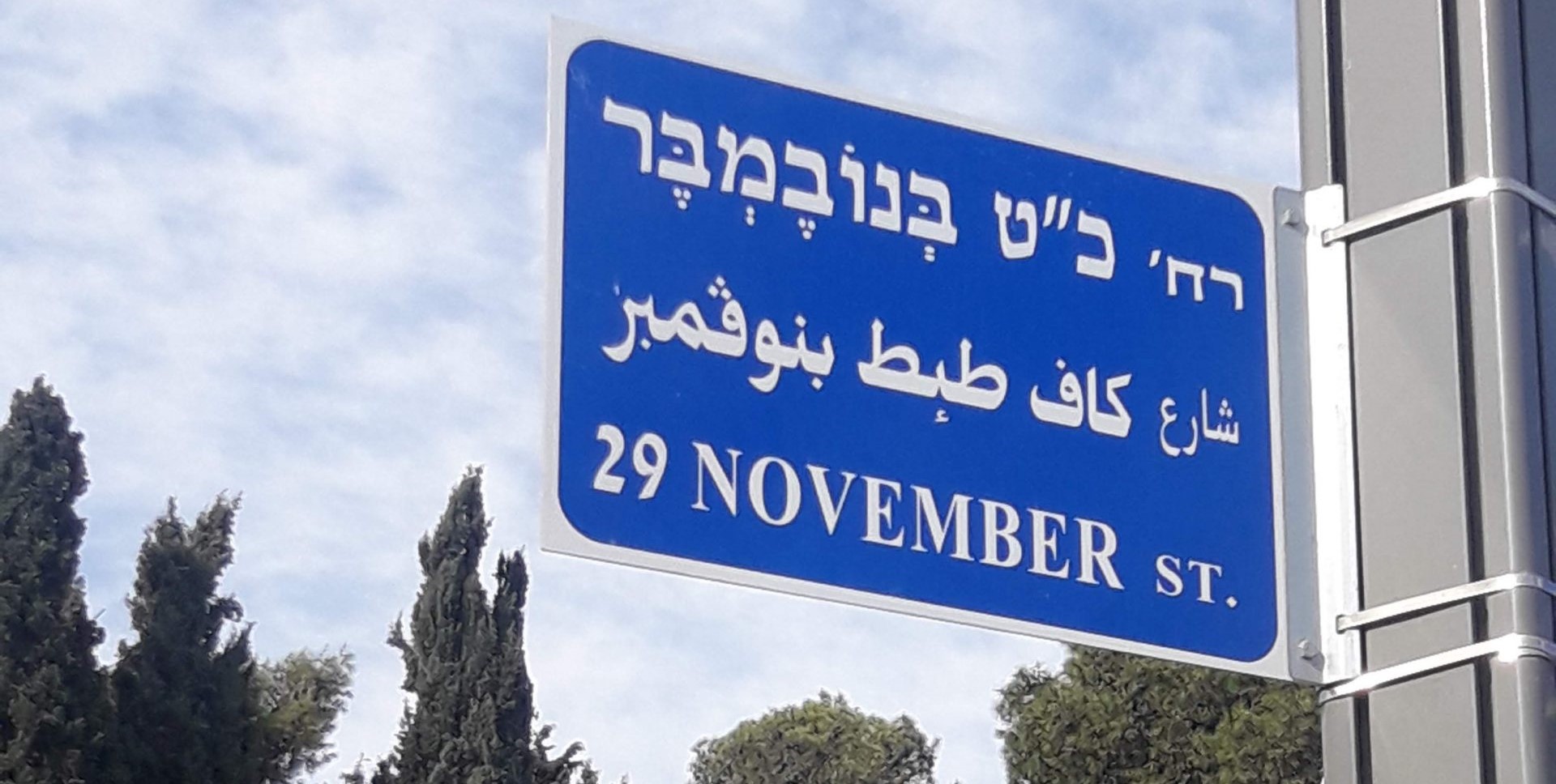
Some had suggested to David Ben-Gurion, Israel’s first Prime Minister, that November 29th should become a national holiday, though it ultimately didn’t happen. The legacy of the date has become somewhat mixed over the years – some people question whether the UN vote was necessary for Israel’s independence, and some even consider the UN partition plan to be a catastrophe because it did not provide for a unified Jerusalem as part of Israel, and the city remains a controversial international issue to this day. Overall, its importance in the public consciousness is not as great as Israel’s Independence Day on May 14th.
Nonetheless, the 29th of November is a day on which we mark and celebrate the international recognition of the right of the Jewish people to live freely in the Land of Israel, our ancestral homeland, and an almost-independence and important step in the Zionist struggle.
Today, the date is remembered in Israel through educational programming organized around its anniversary, as well as the small everyday reminders like passing a street named “Kaf Tet b’November” or “29th of November.”
Celebrate Israeli independence and statehood every day of the year with our special "Support Israel" patriotic gifts by Israeli artists!
Subscribe to JudaicaWebStore mailing list to receive updates on new arrivals, discounts and special offers
IL GLOBAL INC
3 Germay Dr Ste 5 PMB
23545 Wilmington, DE 19804,
USA





Owned by IL GLOBAL INC maintains its offices and warehouse in Jerusalem, Israel.© 1999-2024 Buy unique Israeli Judaica, for sale exclusively online
Owned by JWG Ltd, maintains its offices and warehouse in Jerusalem, Israel. © 1999-2022 JWG Judaica and Dead Sea Cosmetics

